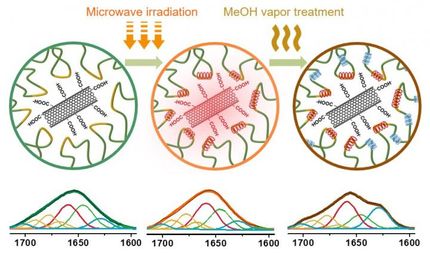Nano-Proprietary, Inc. Announces Improved Carbon Nanotube Based Biosensor
Advertisement
Nano-Proprietary, Inc. , through its subsidiary, Applied Nanotech, Inc. (ANI) announced the successful demonstration of an improved biosensor using carbon nanotubes (CNTs). The new biosensor developed by ANI is based on the immobilization of biological enzymes onto carbon nanotubes, utilizing electropolymerization in conjunction with conducting polymers. The previous technologies implemented with other materials, such as mineral oils, to bind the biological enzyme to nanotubes did not yield sufficient sensitivity. ANI's biosensors utilizing multiwall carbon nanotubes (CNT) show sensitivities for hydrogen peroxide detection three times higher than equivalent competing biosensors.
ANI is in the process of implementing the new process for detection of liquids and gasses. Many harmful gasses such as carbon monoxide, sulfur dioxide, hydrogen sulfite, nitric oxide, hydrogen chloride, hydrogen cyanide and others; as well as liquids such as glucose, phenol, urea, cholesterol, penicillin, fructose, etc. can be detected using ANI's newly-developed sensor technology.
"Our improved biosensor is a versatile, low cost, easy-to-manufacture carbon nantotube-based sensor with many practical applications," said Dr. Zvi Yaniv, CEO of Applied Nanotech, Inc. "In the ecological field, for example, it can be used to monitor impurities in air and water. In the health-care realm, it can enable self-monitoring of glucose levels in blood. The security and defense industries can use it for chemical and biological warfare applications."



































